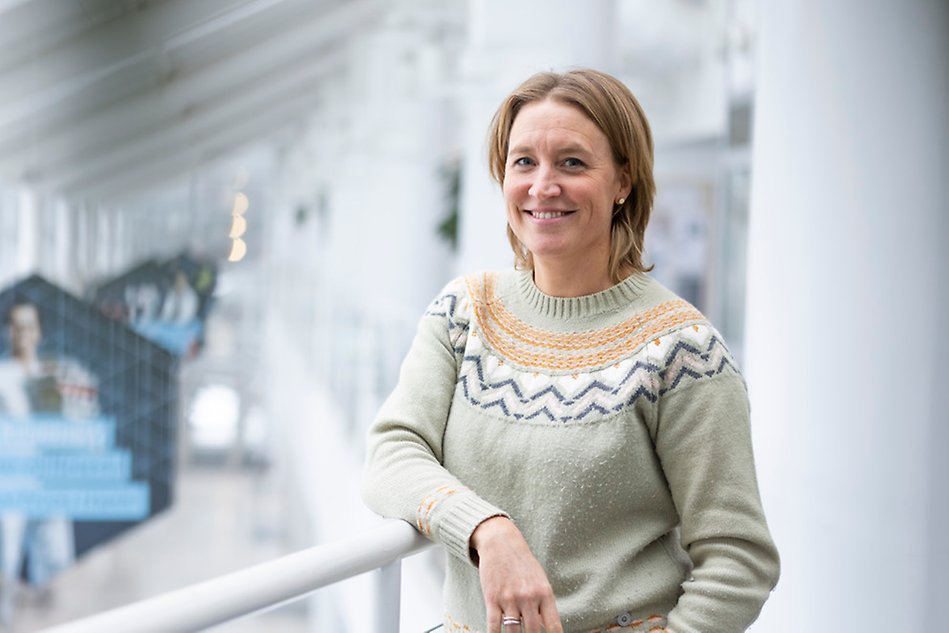Charlotta Winkler, Innovation Sciences
Charlotta Winkler is an industrial PhD student in Innovation Sciences and researches client-driven innovation in the construction sector. She thinks that it is very rewarding and would recommend doing a PhD to anyone who wants to broaden their horisons.

Charlotta WInkler.
Hi, Charlotta! What are you researching?
“I am researching client-driven innovation in the construction sector. As a technical consultant, I have worked for many years with sustainable and energy-efficient buildings and systems for energy supply, with a particular focus on solar cell installations. My work has consisted of motivating, inspiring and helping property developers and builders to investigate, make decisions about and implement projects that make the built environment more sustainable and that reduce the industry’s climate impact.
Over the years, I have worked on projects consisting of everything from construction with passive house technology to purchasing energy-efficient laundry rooms for apartment buildings. For the past ten years, my focus has been to work with solar energy in several different ways and levels, in order to contribute to Sweden also coming close to the potential that exists for generating solar electricity from the roofs and facades of buildings.
Out of this came my research question about how clients can establish and drive strategies for the implementation of energy-related innovations.”
What is it like to be a PhD student?
“It is very rewarding to be a PhD student, more than I had expected. I would recommend this to anyone who wants to broaden their horisons, doesn’t mind a sedentary profession and has some grit.
For me, the doctoral process has brought on a new understanding of the context of things and their relationship with each other. It has been interesting to discuss and reflect on philosophy and people’s outlook on life in combination with talking about technical and social challenges in construction projects. These reflections have caused me to stop and put a lot of what I worked with into new perspectives. I also see explanations for certain phenomena in the industry, which I previously could not put into words.
The education also gives me new insights and an understanding about research and its role in societal development in general.”
What does a typical day look like?
“I plan my working days myself, which suits me very well. I've been working a lot from home, but after the pandemic I have happily returned to the office, where it is nice to be part of the University again. The working days have changed during the doctoral process. Some phases have been filled with reading, others with interviews and data collection, many with courses and lectures, and many days I just sit down and write!”
What is it like to do a PhD when you are also connected to a company?
“The arrangement of being an industrial PhD student has provided valuable variation. Sometimes I need time to think about a question and then it has been good to use the mind to solve practical details or work with slightly faster tasks in my work at the company WSP.
Through the combination of work and research, I have also been able to reflect a lot on the research results in an industrial context. It has also made me think a lot about how my research can provide value and be beneficial both during the course of the education, but also in the future.”
What is it like to teach?
“I have taught to some extent, which has made me think about how I can pass on results from relevant research through teaching. Conversations with students are challenging, but useful. They make me reflect a lot on what my message is and how I should communicate this in an understandable way, but also on how the knowledge can provide value in other contexts.”
Do you have any advice for new PhD students?
“Yes, make sure to find courses that suit your education and research area. Take the courses as soon as possible, they provide the basis for developing reflections, writing and research focus. Get to know the University as a workplace, socialise with other PhD students and also get to know other colleagues!”
Text: Emma Swahn
Photo: Ida Fridwall

